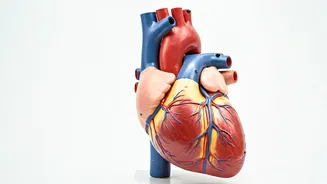Ageing: The Basics
Ageing is an inevitable part of life, and recognizing its signs is the first step towards managing them effectively. In your 40s and beyond, several changes
become more noticeable. These include visible signs like wrinkles, fine lines, dry skin, and pigmentation changes. Internally, you might notice memory changes, slower cognitive function, reduced bone density, and joint stiffness. Additionally, decreased muscle mass and strength are common, as is a slower metabolism, which can contribute to weight gain. Understanding these changes empowers you to take proactive steps to maintain your health and well-being. By focusing on science-backed strategies, you can positively influence how you age and improve your overall quality of life.
Exercise Regularly
Physical exercise stands out as a fundamental element in slowing down the ageing process. Regular exercise offers numerous benefits that counteract many age-related changes. It helps maintain muscle mass and strength, combats reduced bone density, and improves joint flexibility. Engaging in activities like brisk walking, jogging, swimming, or strength training can significantly impact your physical health. The key is consistency; aim for at least 150 minutes of moderate-intensity exercise or 75 minutes of vigorous-intensity exercise per week. Incorporating a variety of exercises, including cardiovascular workouts and strength training, will provide comprehensive benefits. This will not only improve your physical health but also boost your mood and energy levels.
Nourishing Your Body
A balanced, nutrient-rich diet is critical to support overall health and slow down the ageing process. Your diet should be rich in fruits, vegetables, lean proteins, and whole grains. These foods provide essential vitamins, minerals, and antioxidants that protect cells from damage and support various bodily functions. Limit your intake of processed foods, sugary drinks, and unhealthy fats. Focus on incorporating foods that are rich in antioxidants, such as berries, leafy greens, and nuts. Stay hydrated by drinking plenty of water throughout the day. Consider consulting a nutritionist or doctor to tailor your diet to your specific needs. Proper nutrition supports the body's natural processes, keeping your body functioning at its best, and improving your ability to manage ageing.
Protect Your Skin
Protecting your skin and body from damage is crucial for slowing down visible signs of ageing. The skin is often the first place to show the effects of ageing, with wrinkles, fine lines, and pigmentation changes. Protect your skin from sun damage by wearing sunscreen every day, even on cloudy days. Choose a broad-spectrum sunscreen with an SPF of 30 or higher. Use skincare products with ingredients like retinol, vitamin C, and hyaluronic acid, which can help reduce the appearance of wrinkles, improve skin elasticity, and hydrate your skin. Avoid smoking, as it accelerates skin ageing. Additionally, stay hydrated, as adequate water intake promotes healthy skin. By incorporating these habits into your daily routine, you can significantly slow down the visible effects of ageing and maintain a youthful appearance.
Engage Your Mind
Mental and social engagement is another key element in supporting healthy ageing. Keeping your mind active can help maintain cognitive function and reduce the risk of age-related cognitive decline. Engage in activities that challenge your brain, such as reading, puzzles, learning new skills, or playing strategy games. Social interaction is also crucial. Staying connected with friends, family, and community groups can provide emotional support and reduce feelings of isolation. Consider participating in social activities, volunteering, or joining clubs to stimulate your mind and social life. A combination of mental and social engagement will keep your mind sharp and your spirit uplifted.





















